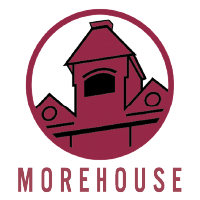Online education has become an essential tool for colleges and universities to continue instruction during the COVID-19 pandemic. But many students at historically Black colleges and universities who were forced to return home when campuses closed did not have the technology to continue their education at full capacity. According to the U.S. Census and a report by the U.S. Department of Commerce, 43 percent of African American households are without a desktop or laptop computer.
 Some HBCUs are taking steps to address this issue, if and when another such emergency occurs. Starting this fall, all first-year students at Edward Waters College in Jacksonville, Florida, will receive laptop computers in a partnership with the Follett Higher Education Group. The Chromebook computers will include the Microsoft 365 software suite. The multi-year partnership includes annual scholarship support for students and other assistance. The program also will give students access to course materials via an e-textbook platform at a reduced cost.
Some HBCUs are taking steps to address this issue, if and when another such emergency occurs. Starting this fall, all first-year students at Edward Waters College in Jacksonville, Florida, will receive laptop computers in a partnership with the Follett Higher Education Group. The Chromebook computers will include the Microsoft 365 software suite. The multi-year partnership includes annual scholarship support for students and other assistance. The program also will give students access to course materials via an e-textbook platform at a reduced cost.
 At Morehouse College in Atlanta, newly enrolled students for the 2020-21 academic year will be given Microsoft Surface 2-in-1 tablets that run Windows 10 and can be used in either tablet or desktop mode.
At Morehouse College in Atlanta, newly enrolled students for the 2020-21 academic year will be given Microsoft Surface 2-in-1 tablets that run Windows 10 and can be used in either tablet or desktop mode.
“The digital divide is another battlefield in the fight for social justice because it is directly linked to income disparities between racial groups,” said David A. Thomas, president of Morehouse College. “Black and brown families are at the lowest rungs of the household income scale. According to the Pew Research Center, nearly half of adults with a yearly household income of $30,000 do not have a computer for themselves or their children to use. We are grateful to Microsoft for partnering with us to help level the playing field in technology for our new students.”

